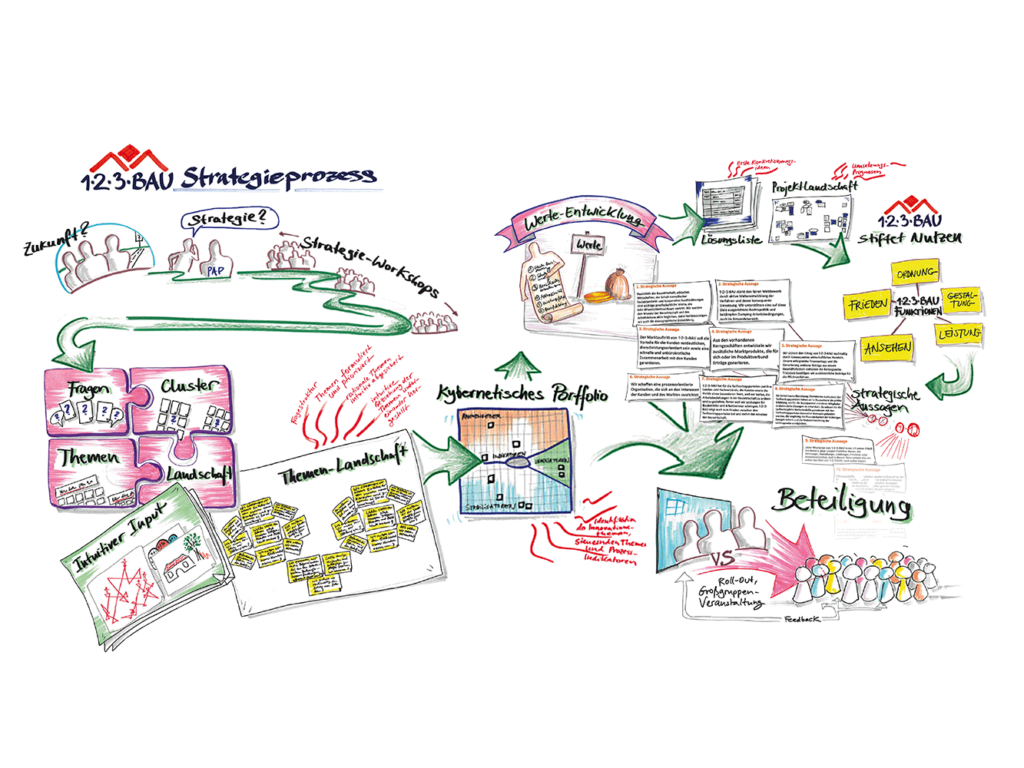Strategy optimised by systemic experience
Sustainable implementation of change processes is based on systemic strategies.
In recent decades, it has been shown time and again that strategies developed for a company by classic consulting firms mainly benefit the consultants. Mostly, standardised strategy forms are given from outside (e.g. “best of”, “benchmark” or “open water”), which neither address the company’s history nor take into account the valuable know-how of an organisation.
Systemic strategy development takes a different approach: Parallel, interlocking processes are set up to develop sustainable strategies that work for a decade.
7 Topics of Systemic Strategy Development:
1. Trust: Gain trust: in yourself, your purpose, your employees, your customers, your advisors.
2. Function: define the sustainable function of your company for a sustainable market. (There is no point in continuing to build cars – no matter how powered – that serve no function in a sustainable world for the individual transport of people).
3. Finance: reserve at least 50% of your company’s value for transformation in the coming decade. Deadline today!
4. Systemic: Get clear on how your various market environment and business issues are systemically interconnected and governed.
5. Participation: Make those affected (at least employees, customers, owners and banks) at least 20% enthusiastic participants so that your project succeeds 100%!
6. implementation: Happen in parallel with the development of the strategy for change. At the same time as exploring your future, try out how something could go; lab groups, strategists, workers, representatives and financiers…. all helping to secure your future with redesign for a sustainable world.
7. Start now: start implementing immediately. There is no more time for plans.
Be the change you want to see in this world.
– Mahatma Gandhi.



